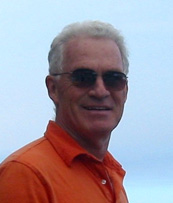Wednesday, November 7, 2007
The Top 50 ways to save the planet
http://www.renewableenergyfocus.com/articles/general/news/071105_eapoll.html
The Top 50 ways to save the planet
London, UK, November 6, 2007. The UK Environment Agency has polled a group of environmental experts for their suggestions on how to save the planet.
The renewables field makes a strong showing at number 14 with an entry entitled 'A Surge in Renewables.' It points out that Britain has some of the best renewable energy resources on its own doorstep, including 40% of Europe's windpower. The sea comes in for particular praise, with Paul Brown, former Guardian correspondent and author of global warming, and Chris Goodall, Independent on Sunday writer and author of How to Live a Low Carbon Life, enthusiastic about undersea turbines that harness tidal power. Ocean energy conversion - which uses the difference in temperature between surface and deep sea water to extract heat and turn turbines - is also favourably mentioned.
Incentivising green products is enthusiastically endorsed, ranking at number six in the Top 100. "Every product that reduces the nation's carbon dioxide footprint (for example, insulation) should be zero rated for VAT and clearly labelled as such," says Paul Brown. One intriguing idea put forward by David Boyle, an associate at the New Economics Foundation, is for local, regional and city currencies. "This means we use resources more efficiently," he says.
At number four the unbundling of electricity generation and distribution is a revolution waiting to happen, according to the experts. Noel Wheatley, Head of International Relations at the Environment Agency, believes that EC member states need to accept that electricity production and distribution can be owned separately. From there it's a short step to 'small scale electricity generation that is cost effective and works well, particularly wind turbines and solar panels.'
Also in the top five are demands for a major post-Kyoto treaty, 'based on support from citizens, businesses, local authorities, NGO's and faith groups.'
Solar power is ranked near the top of the list at number three with Jonathan Porritt, Chairman of the UK Sustainable Development Commission, enthusiastically endorsing large scale solar power. According to Paul Brown, "using giant mirrors in tropical and desert regions to direct the sun's rays onto a liquid so it boils and turns turbines to make electricity." Chris Goodall observes that the very high cost of producing large slabs of silicon may fall sharply because of recent advances in nanotechnology. "We can expect very thin layers of photovoltaic material to cover large parts of buildings at a reasonable price" says Goodall.
A notable arrival at number two is what might be termed a matter of faith. That is, the need for religious leaders to make the planet, rather than their respective gods, the priority. "The world's faith groups have been silent for too long," says Nick Reeves, Executive Director, CIWEM. "It is time that they fulfilled their rightful collective role in reminding us that we have a duty to restore and maintain the ecological balance of the planet."
At number one pride of place goes to powering down the profusion of white goods that are estimated to waste the equivalent of two electrical power stations every year. Friends of the Earth Director, Tony Juniper sums it up as, "All electrical products to embody the most energy efficient technology."
The report makes fascinating reading. Amongst other things it reads like a wish list for the renewables industry as it highlights familiar demands such as the need for better biofuels, increased use of solar power, tougher post-Kyoto targets, decentralisation of power supplies and the abandonment of the fossil fuel habit. Surprisingly for a report from an official government body there is no mention of nuclear power and overpopulation is oddly passed off as the responsibility of Governments not couples.
Of course it's not all plain sailing for renewables. For example, although biofuels make the list at number 15 they are strongly criticised by one of the contributors, Chris Goodall. He says "Conventional biofuels are a complete disaster, financially and environmentally," but then dispels the gloom by making a plea for better biofuels. "We may see cost competitive technologies for breaking up the cellulosic material of plants within ten years or so. This means we will be able to use most organic wastes to make fuels much more efficiently."
One thing that comes through strongly in reading the list is the emphasis on individuals generating their own power either at home or in the community and the need to ‘spread the word’.
Each contributor was able to nominate up to five things in the following categories - consumer and domestic, groups and networks, ideas and belief systems, policies and agreements and science, technology and education.
http://publications.environment-agency.gov.uk/pdf/GEHO0907BNFQ-e-e.pdf?lang=_e